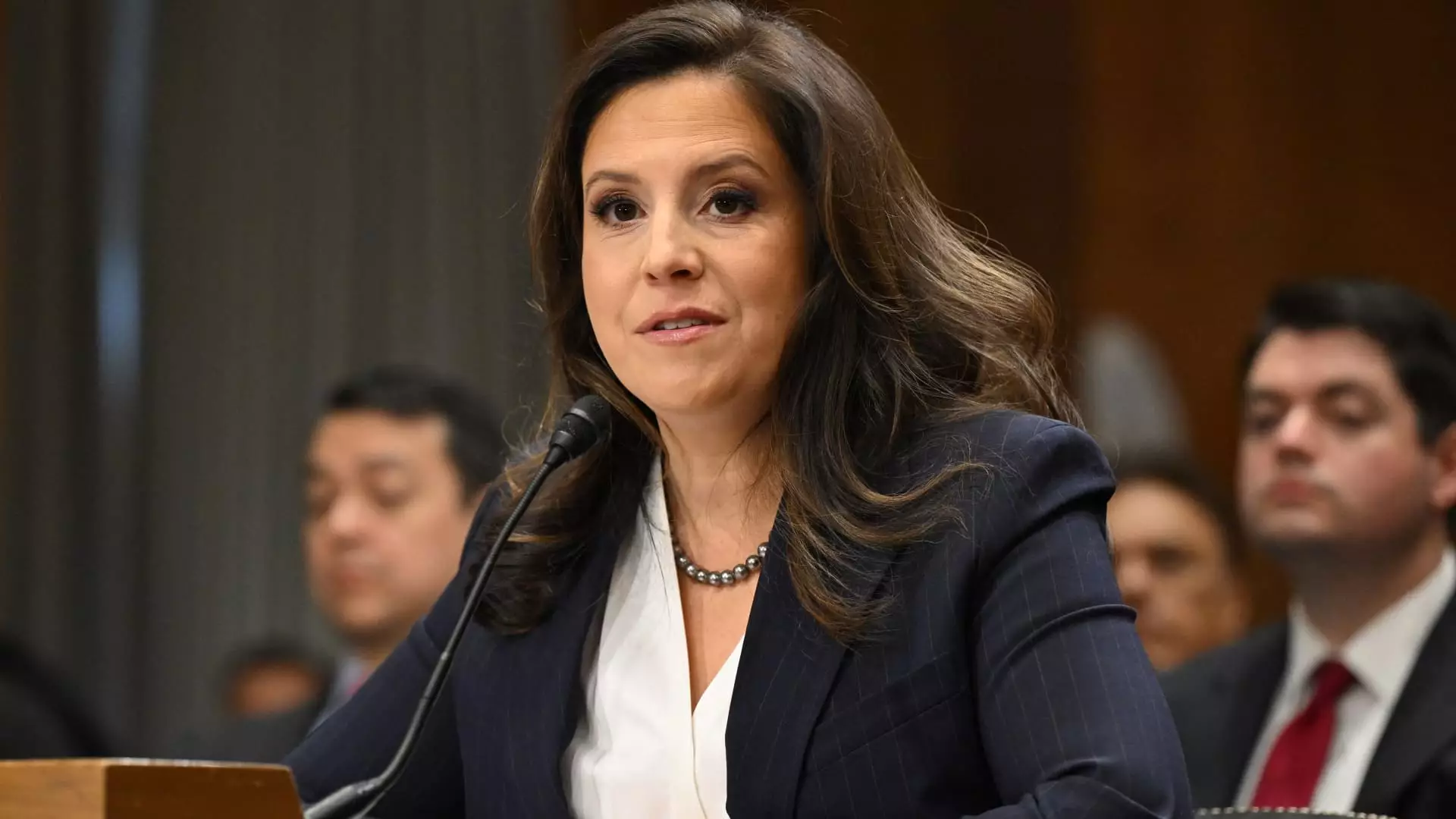In a recent and somewhat unexpected move, President Donald Trump chose to withdraw the nomination of Rep. Elise Stefanik as the U.S. ambassador to the United Nations. The reasons given highlighted the precarious nature of the Republican majority in the House of Representatives. At a glance, it appears to be a simple strategic maneuver; however, this decision symbolizes deeper insights into Trump’s political calculus. Maintaining every Republican seat in Congress has become a paramount goal, one that underscores the fragility of the GOP’s hold on power.
Trump wrote on social media that he believes every seat is integral to advancing his “America First Agenda.” While some may view this staunch conservatism as rigid, one must consider the underlying wisdom in ensuring that a steadfast ally like Stefanik remains in Congress. The delicate balance of political alliances cannot be overlooked—especially when every vote matters. This could be seen as not just a move to support Stefanik, but also a calculated effort to prevent a potential Democrat gain that could shift the scales.
The Power of Loyalty Over Diplomatic Ambition
Trump’s decision underscores the importance of loyalty over the allure of high-profile appointments. Elise Stefanik, a fierce ally of Trump’s policies, represents a full-throated endorsement of his initiatives. By keeping her in the House, Trump secures a voice that is well-versed in his agenda and capable of defending it against formidable Democratic opposition. This isn’t merely about policy; it’s a play for loyalty—a theme that resonates deeply with Trump’s base.
In an era where political allegiances can shift rapidly, having a consistent ally in the legislature may prove more advantageous than a questionable appointment at the U.N. Would it be worth risking a seat in Congress for a title in international diplomacy, especially when that title doesn’t guarantee zone-free support for the President’s policies? The answer seems to Tread lightly, as Trump’s instincts for political wrangling have repeatedly proven effective.
Ambassadorial Roles: The Reality of Political Theater
While the U.N. position may seem glamorous and vital, one must consider the true efficacy of such roles. Historically, U.N. ambassadors have struggled to exert meaningful influence, often subjugated to the whims of domestic politics. By withdrawing Stefanik from consideration, Trump sidesteps the risk that her potential candidacy could become a theatre of political debate, one where individual effectiveness may be drowned out by partisan squabbling.
This could also serve as a reminder that U.N. postings are often more about optics than tangible results. In the grand scheme of Trump’s strategy, it might seem far wiser to concentrate on legislative gains rather than diplomatic prizes. The international stage is critical, yes, but for Trump and his inner circle, immediate political needs take precedence.
A Broader Reflection on Trump’s Political Strategy
This situation reveals a profound principle of contemporary Republican politics: the need for cohesiveness and clarity in purpose. Trump’s commitment to strengthening the party reflects a desire to create a unified front that could challenge prevailing narratives and mobilize voters. The Arizona Republican Party’s disarray or the inability of the GOP to solidify a coherent opposition in the House may serve as cautionary tales in Trump’s thinking.
By opting against extravagance in favor of practicality, Trump continues to craft a narrative that emphasizes strength, unity, and results. Ultimately, it is not just about who holds an ambassadorial title; it’s about maintaining a robust Republican apparatus capable of enacting meaningful change. The decision to withdraw Stefanik’s nomination is less about the failed recognition and more a strategic repositioning of force within the Republican ranks, laying the groundwork for a more assertive agenda moving forward.


Leave a Reply